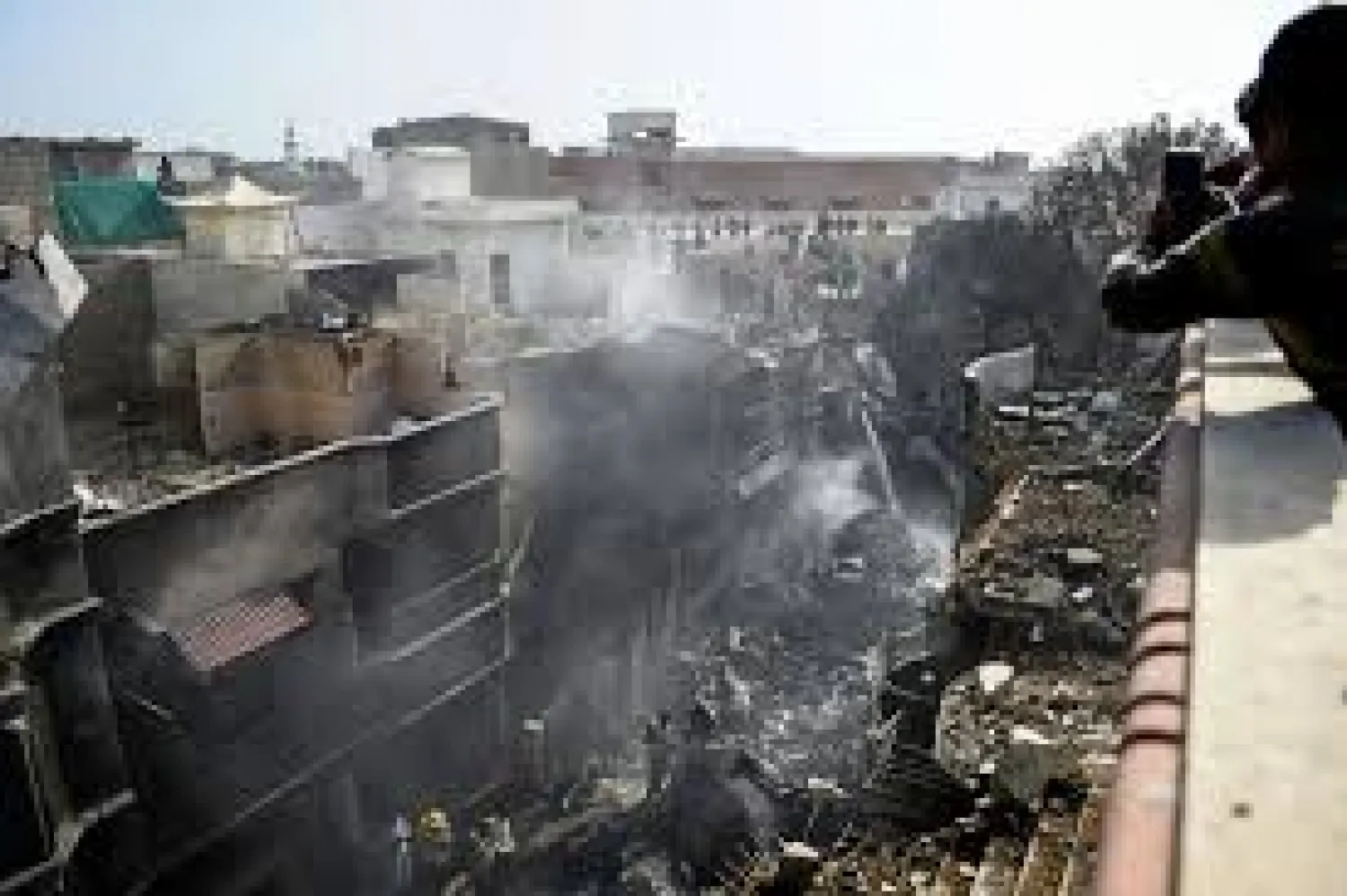All but two of the 99 people on board a Pakistan passenger plane were killed when it crashed into a residential neighborhood of Karachi, officials said Saturday, as rescue workers toiled through the charred and twisted wreckage strewn across the street.
The Pakistan International Airlines (PIA) plane had made multiple approaches to land at Karachi airport on Friday when it came down among houses, sparking a rescue operation that lasted into the night.
PIA spokesman Abdullah Khan said on Saturday the flight data recorder from the airliner was found, including both the flight data recorder and cockpit voice recorder.
"The black box had been found late yesterday, we are handing it over to the inquiry board," he said.
The bodies of all the passengers and crew had been recovered, the Sindh Health Ministry said, adding that 19 had been identified.
DNA testing was being carried out at the University of Karachi to help identify the dead.
Flames and plumes of smoke were sent into the air as the plane came down, its wings slicing through rooftops before crashing onto a street.
Residents were the first to search through debris for survivors, with witnesses reporting the cries of a man hanging from the plane's emergency exit door.
A local hospital earlier reported it had received the bodies of people killed on the ground.
PIA said air traffic control lost contact with the plane traveling from Lahore to Karachi just after 2:30 pm (0930 GMT).
The disaster comes as Pakistanis prepare to celebrate the end of the Muslim fasting month of Ramadan and the beginning of Eid al-Fitr, with many traveling to their homes in cities and villages.
Sarfraz Ahmed, a firefighter at the crash site, told AFP that rescuers had pulled bodies from the Airbus A320 aircraft who were still wearing seatbelts.
Residents near the scene recounted how their walls shook before a big explosion erupted as the aircraft slammed into the neighborhood.
"I was coming from the mosque when I saw the plane tilting on one side. It was so low that the walls of my house were trembling," said 14-year-old Hassan.
Another resident, Mudassar Ali, said he "heard a big bang and woke up to people calling for the fire brigade".
An AFP reporter witnessed charred bodies being loaded into ambulances.
"It was an (Airbus) A320, which is one of the safest planes," PIA chief executive Arshad Mahmood Malik said at a press conference. "Technically, operationally everything was in place."
Aviation minister Ghulam Sarwar Khan said the captain, Sajjad Gull, had been described by the airline as a senior A320 pilot with extensive flight experience.
Airbus said that the plane had first entered service in 2004 and was acquired by PIA a decade later and had logged around 47,100 flight hours.
PIA promised a full independent investigation.
- 'Prayers & condolences' -
Pakistan Prime Minister Imran Khan said he was "shocked and saddened" by the crash, tweeting that he was in touch with the state airline's chief executive.
"Prayers & condolences go to families of the deceased," he wrote on Twitter.
The Pakistan military said security forces were deployed to the neighborhood and helicopters were used to survey the damage, while offering condolences over the "loss of precious lives."
Commercial flights resumed only days ago, after planes were grounded during a lockdown over the coronavirus pandemic.
Pakistan has a chequered military and civilian aviation safety record, with frequent plane and helicopter crashes over the years.
In 2016, a Pakistan International Airlines plane burst into flames after one of its two turboprop engines failed while flying from the remote north to Islamabad, killing more than 40 people.
The deadliest air disaster on Pakistani soil was in 2010, when an Airbus A321 operated by private airline Airblue and flying from Karachi crashed into the hills outside Islamabad as it came in to land, killing all 152 people on board.
An official report blamed the accident on a confused captain and a hostile cockpit atmosphere.
PIA, a leading airline until the 1970s, has seen its reputation sink due to frequent cancellations, delays, and financial troubles.
It has been involved in numerous controversies over the years, including the jailing of a drunk pilot in Britain in 2013.









